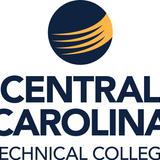- South University is accredited by the Southern Association of Colleges and Schools Commission on Colleges (SACSCOC) to award associate, baccalaureate, master's, and doctorate degrees. Questions about the accreditation of South University may be directed in writing to the Southern Association of Colleges and Schools Commission on Colleges at 1866 Southern Lane, Decatur, GA 30033-4097, by calling (404) 679-4500, or by using information available on SACSCOC's website (www.sacscoc.org).
School Highlights
South University-Columbia serves 879 students (71% of students are full-time).
The college's student:teacher ratio of 8:1 is lower than the state community college average of 18:1.
Minority enrollment is 82% of the student body (majority Black), which is more than the state average of 48%.
Quick Stats (2025)
- Enrollment: 879 students
- Acceptance Rate: 49%
- Student:teacher ratio: 8:1
- Minority enrollment: 82%
- Source: Integrated Postsecondary Education Data System (IPEDS)
Top Rankings
South University-Columbia ranks among the top 20% of public schools in South Carolina for:
Category
Attribute
School Overview
The teacher population of 109 teachers has stayed relatively flat over five years.
South University-Columbia
(SC) Community College Avg.
Carnegie Classification
Doctoral/Professional Universities
Associate's Colleges: High Vocational & Technical-High Traditional
Institution Level
Four or more years
At least 2 but less than 4 years
Institution Control
Private for-profit
Public
Total Faculty
109 staff
177 staff
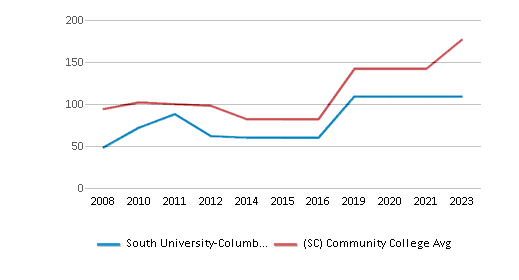
School Calendar
Student Body
The student population of South University-Columbia has grown by 10% over five years.
The student:teacher ratio of 8:1 has increased from 7:1 over five years.
The South University-Columbia diversity score of 0.47 is less than the state average of 0.63. The school's diversity has declined by 6% over five years.
Total Enrollment
879 students
2,253 students
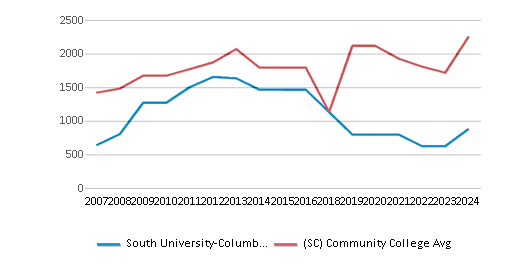
Student : Teacher Ratio
8:1
18:1
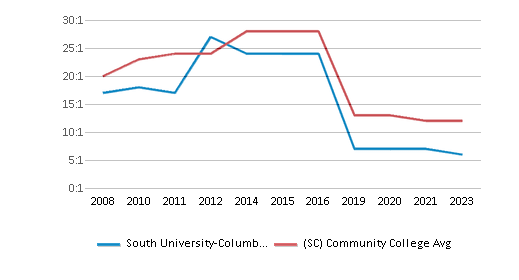
# Full-Time Students
622 students
622 students
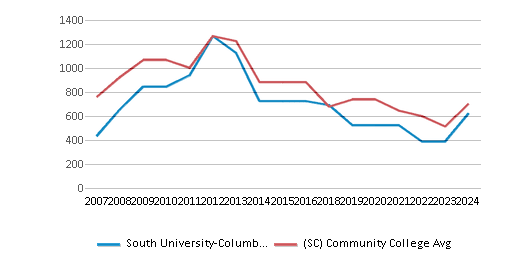
# Part-Time Students
257 students
1,349 students
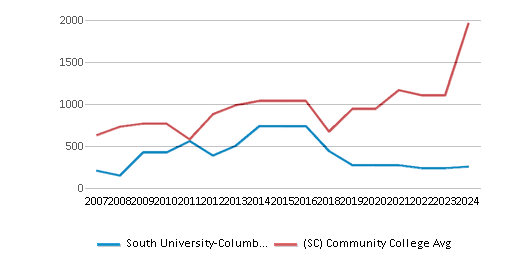
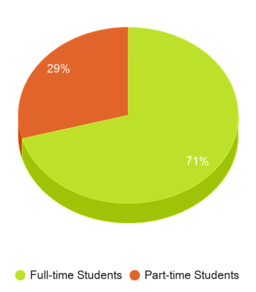
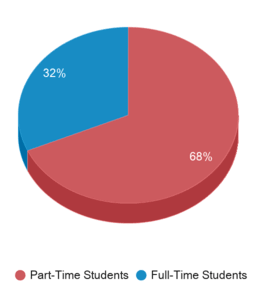
# Enrollment Undergraduate
737 students
279 students
# Full-Time Undergraduate Students
512 students
605 students
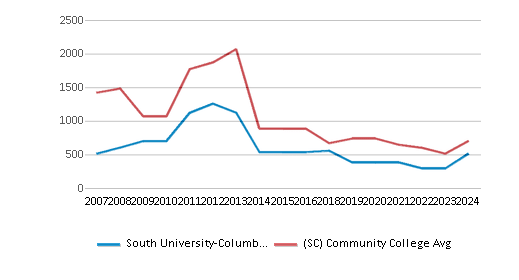
# Full-Time Graduate Students
110 students
8 students
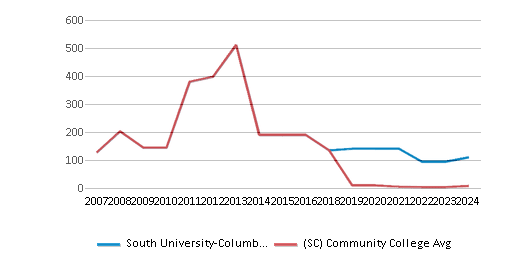
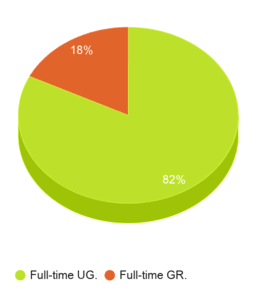
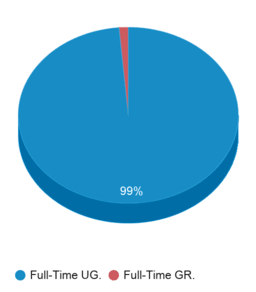
# Part-Time Undergraduate Students
225 students
1,965 students
# Part-Time Graduate Students
32 students
32 students
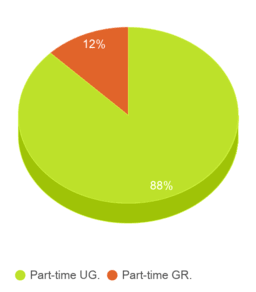
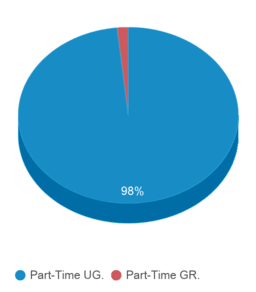
Total Dormitory Capacity
n/a
260 students
% American Indian/Alaskan
1%
n/a
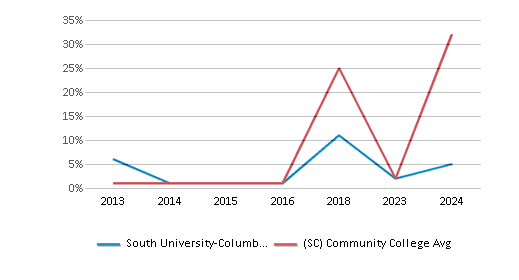
% Asian
1%
2%
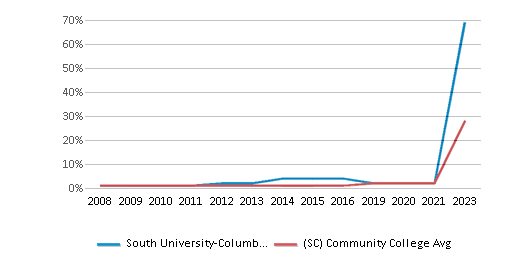
% Hispanic
4%
9%
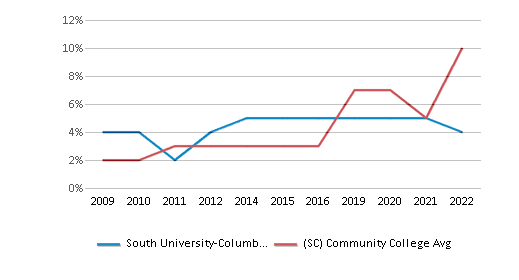
% Black
70%
29%
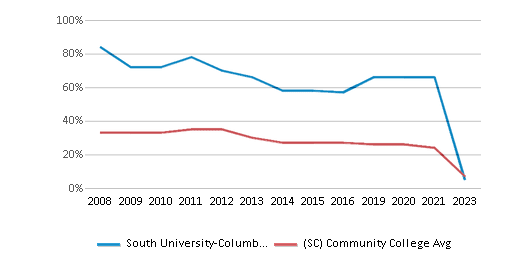
% White
18%
52%
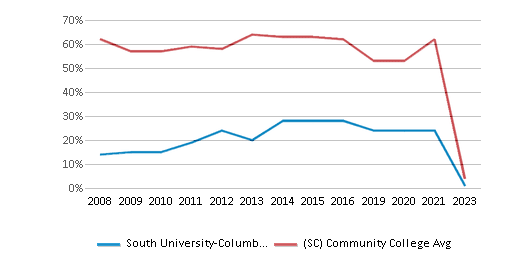
% Hawaiian
n/a
n/a
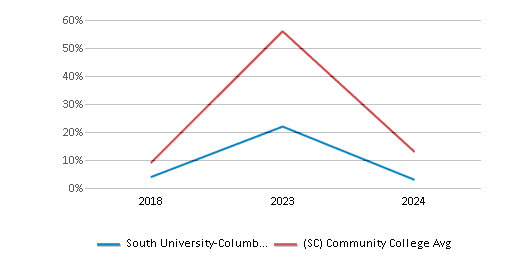
% Two or more races
3%
4%
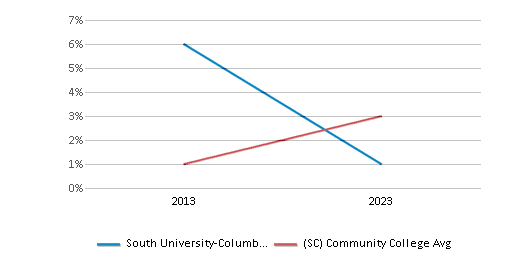
% Non Resident races
n/a
n/a
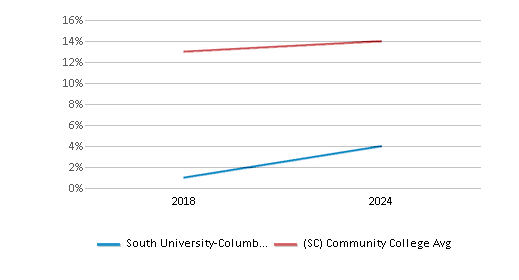
% Unknown races
3%
4%
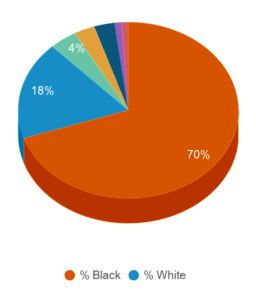
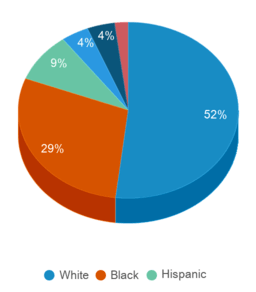
Diversity Score
0.47
0.63
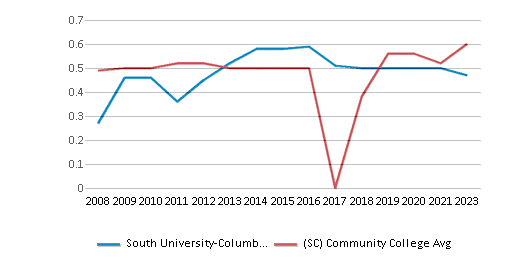
College Completion Rate (Students who graduate in less than 4 years)
n/a
0.2579%
College Completion Rate (Students who graduate in 4 years or more than 4 years)
0.0769%
0.172%
Average Graduate Earnings (10 Years)
$34,100
$28,800
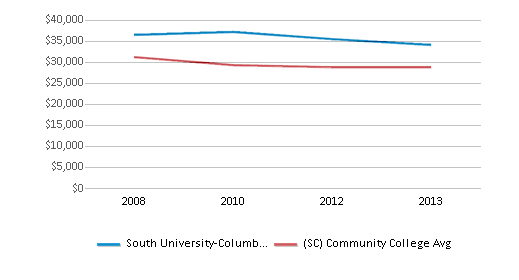
Tuition and Acceptance Rate
% Students Receiving Some Financial Aid
80%
93%
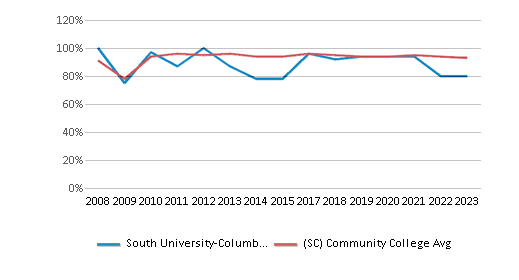
Median Debt for Graduates
$25,379
$11,729
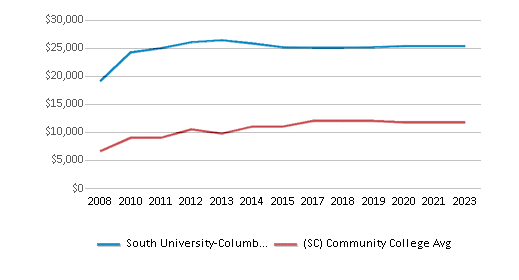
Median Debt for Dropouts
$9,500
$5,500
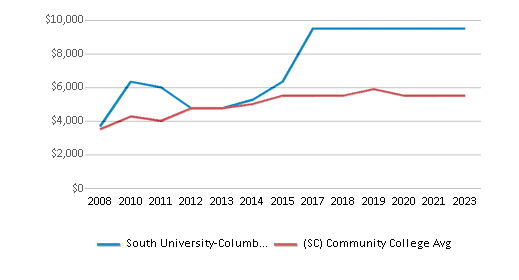
Acceptance Rate
49%
71%
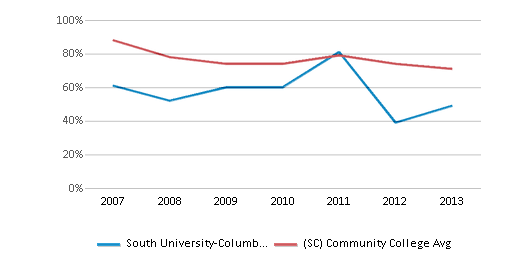
SAT Reading
n/a
430
SAT Math
n/a
458
SAT Writing
n/a
413
ACT Composite
n/a
18
ACT English
n/a
17
ACT Math
n/a
18
ACT Writing
n/a
6
Source: 2024 (or latest year available) Integrated Postsecondary Education Data System (IPEDS) , School Administrators
School Notes
- The University traces its heritage to 1899, when Dr. John Draughon established Draughon's Practical Business College in Savannah, GA. Since its humble beginnings, South University has experienced continued growth transforming from a two-year college into a four-year, SACS-accredited University offering associate's, bachelor's, master's and doctorate degree programs with campus locations in Savannah, GA, Columbia, SC, Montgomery, AL, Tampa, FL and West Palm Beach, FL. Today, South University continues to build on its more than a century of academic excellence by continuing to be a recognized innovator in higher education. With the introduction of South University Online, students can pursue both undergraduate degree and master's degree programs ranging from Criminal Justice to an MBA. South University offers a wide range of educational programs at the associate's, bachelor's, master's, and doctoral levels. Programs are offered in Accounting, Allied Health Science, Master of Medical Science in Anesthesia Science, Business Administration, Criminal Justice, Graphic Design, Health Science, Healthcare Management, Information Technology, Legal Studies, Medical Assisting, Nursing, Paralegal Studies, Pharmacy, Physical Therapist Assisting, Physician Assistant. South University's Columbia campus is nestled in the historic district of Eau Claire, just minutes north of downtown and South Carolina's state capitol building. South University's Columbia campus provides classroom and student service areas and is equipped with computer labs and medical laboratories for use by students. The library houses a large collection that includes an extensive law library. Students may retrieve periodicals in paper or electronic form. Students may also access several commercial on-line services including WESTLAW, the computerized legal research service; LIRN; SearchBank; Infotract; and UMI ProQuest, and the Electronic Library. Internet access is available on all computers throughout the campus. South University is accredited by the Commission on Colleges, Southern Association of Colleges and Schools (SACS) as a Level V institution eligible to award associate's, bachelor's, master's, and doctoral degrees.
Frequently Asked Questions
What is the acceptance rate of South University-Columbia?
The acceptance rate of South University-Columbia is 49%, which is lower than the state average of 71%.
What is South University-Columbia's ranking?
South University-Columbia ranks among the top 20% of community college in South Carolina for: Average community college minority breakdown.
In what neighborhood is South University-Columbia located?
South University-Columbia is located in the Midtown Downtown neighborhood of Columbia, SC.
Recent Articles

Obtaining Your Bachelor's Degree at a Community College
Explore the evolving landscape of community colleges offering bachelor's degrees, addressing affordability, accessibility, and workforce needs.

A to Z of Community College Certificates and Courses
From business and healthcare to technology and skilled trades, the article showcases the breadth of options available to students seeking to enhance their knowledge, develop new skills, or pursue career advancement.

What is a Community College?
This comprehensive guide explains what a community college is, its history, and its role in higher education. It covers the types of programs offered, differences from four-year colleges, benefits of attending, and important considerations for prospective students, providing valuable insights for those exploring educational options.

